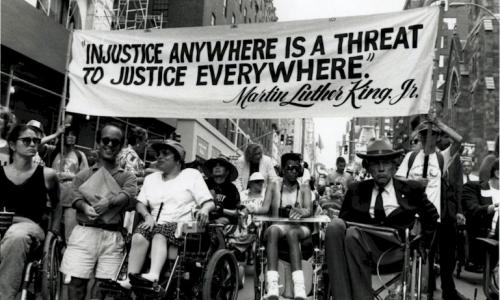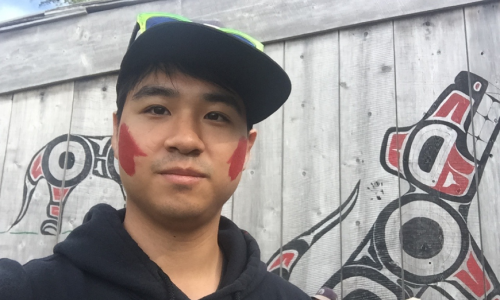
This article was written in collaboration with four other post-secondary students, and I ask that you please read the following with an open mind and an open heart. If you have any questions after reading this article, it may be beneficial to check out the resources available at SFU’s Health and Counselling Services.
Depression can affect anyone and everyone, leaving each of us susceptible to experiencing mental illness at some point in our lives. No matter the age or amount of support available, the conditions can be difficult to cope with. Accordingly, one in five Canadian post-secondary students experience depression or anxiety. To put this into perspective, this would be 60 students out of a first-year course that has 300 students enrolled in it. It is significant.
To better illustrate some of the unique challenges for students at university who identify with having depression, I’ve teamed up with four post-secondary students to provide you with first-hand information on some of the unique challenges they face at SFU.
What University Students With Depression Want You to Know
I think the biggest thing that students need to understand is that having depression doesn’t just mean you’re sad. In fact, many times people with depression don’t feel anything at all. It’s an illness that takes over your entire brain and body, and affects not only your mood, but your energy level, memory, concentration, ability to sleep, pain, motivation, anxiety, ability to cope with stress, etc. Therefore, all of these symptoms make being a student very difficult. Just showing up to class is an immense struggle in itself, let alone focussing during a two to three hour lecture and completing assignments. I think the biggest thing about being a student with depression is that you can end up feeling incredibly alone because it is an invisible illness that is not talked about enough, so people end up suffering in silence.
From my experience, depression is worse than any physical pain out there. I’ve suffered a lot of physical pain, but nothing comes close to the complete numbness of depression when you are intent on ending your life. That’s really the darkest place you can possibly be. It’s not a weakness or a lack of courage, and no, suicide is not being selfish - it’s not knowing what else to do. To those who are suffering, don’t be afraid to speak out and reach out for help. It is nothing to be ashamed of.
- Kendra Wragg, 4th-year student at Simon Fraser University
Mental illness is real. The emotions are real. The experience is real - for the individuals living it. It's not having full control over your mind, the tool that determines how you perceive the world. It's having your mind sabotage you to no end, and feeling like you can't escape. It's feeling so limited, restricted, and small. Then add the overwhelming stress and uncertainty associated with the university experience.
For allies, you may not see it or understand, but it's there. And when a loved one is going through that experience, I ask that you listen with empathy and love. Empty yourself of any assumptions or judgments. Listen.
Do you have to fully understand the experience in order to see and accept that it's happening? If you don't live with mental illness, you will never fully understand. And that's okay. You can still accept that it exists, that it affects your family and friends, that they are struggling, and that you CAN help. If you don't know where to start, do the research. There are many resources out there for allies and loved ones of those living with mental illness.
- Ji-Youn Kim of The Tipping Point
I think it's easy to let the worry take over, and forget that the person who you now know has depression is still the exact same person they were before. The difference doesn't lie in who they are, but what you know about them. I have had people turn around and start treating me like I'm weak and delicate after finding out, and it sucks. Sure, I'm sick and I'm exhausted and I'm suicidal, but I still have the same sense of humour as I did yesterday, and I still like to do all of the things that we did together before you found out. And I'm still here and alive and fighting this illness, so give me a little bit of credit.
Depression doesn't make you weak; it makes you hurt, but that's okay, and I think people need to realize that just because I'm hurting doesn't mean I'm WEAK. The same goes for everyone with mental illness: we're tough as [brick] because we're still here and we're facing it and we're fighting it!
- Anonymous
Depression isn’t a constant state of being. It comes and goes like the seasons, but just because I’m having a good day doesn’t mean that it is gone completely. During my deeper episodes, I start becoming very withdrawn and introspective. I become self-critical of every mistake I’ve ever made in life, and I discount every achievement I’ve ever accomplished. Through my over-thinking, I manage to convince myself that I deserve depression, and my depression slowly eats me away from the inside until some days I just feel like a walking shell. One of the biggest signs of depression I have is sleep-related. It can vary from insomnia to oversleeping, depending on my stress levels. I could be sleeping for 12 hours and still feel tired, and it’s more of an emotional tiredness than physical. I wake up feeling like there’s no point being awake, so why not just go back to dreaming where I can at least imagine a better and more exciting life than reality. If I can’t fall back asleep, I just browse Reddit or social media forums on my phone, until I get tired and pass out again. Lastly, I always distance myself from friends and family when I’m going through depression. I don’t know if it’s a form of self punishment or not, but I manage to convince myself that no one truly cares about how I’m doing because they’re all busy with their own lives. I distance myself by either not responding to texts, or refusing to leave the house. And because I live by myself, sometimes I can spend up to a week of time completely alone and have no contact with the outside world.
For those who are going through depression right now: depression can be triggered by anything, and the longer an episode is, the harder it is to get out of that mindset. What has helped me is to figure out my triggers, such as being on social media for too long, and to pull myself away from that trigger. I have found that walking helps me get out of my head, and talking to friends on the phone also helps. I just need to find an external stimulus (my phone isn’t one) so that I’m not so focused on my thoughts.
- Anonymous
Beyond the Blog
-
Connect with resources through Health and Counselling.
-
Check out the SFU club Pursuit of Happiness














